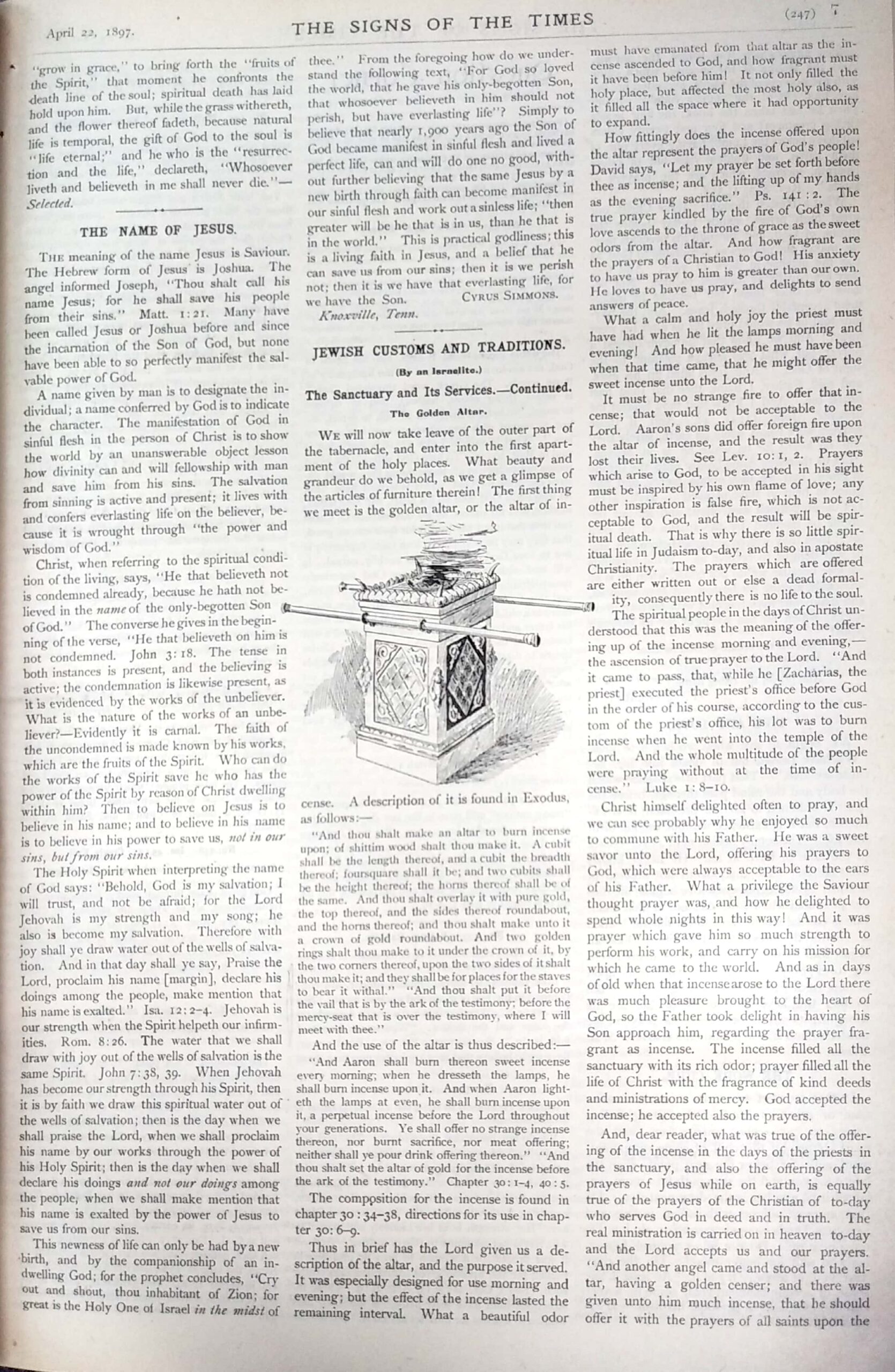“The meaning of the name Jesus is Saviour. The Hebrew form of Jesus is Joshua. The angel informed Joseph, “Thou shalt call his name Jesus, for he shall save his people from their sins.” Matt. 1:21. Many have been called Jesus or Joshua before and since the incarnation of the Son of God, but none have been able to so perfectly manifest the salvable power of God.
A name given by man is to designate the individual; a name conferred by God is to indicate the character. The manifestation of God in sinful flesh in the person of Christ is to show the world by an unanswerable object lesson how divinity can and will fellowship with man and save him from his sins. The salvation from sinning is active and present; it lives with and confers everlasting life on the believer, because it is wrought through “the power and wisdom of God.”
Christ, when referring to the spiritual condition of the living, says, “He that believeth not is condemned already, because he hath not believed in the name of the only-begotten Son of God.” The converse he gives in the beginning of the verse, “He that believeth on him is not condemned.” John 3:18 The tense in both instances is present, and the believing is active; the condemnation is likewise present, as it is evidenced by the works of the unbeliever. What is the nature of the works of an unbeliever?– Evidently it is carnal. The faith of the uncondemned is made known by his works, which are the fruits of the Spirit. Who can do the work of the Spirit save he who has the power of the Spirit by reason of Christ dwelling within him? Then to believe on Jesus is to believe in his name; and to believe in his name is to believe in his power to save us, not in our sins, but from our sins.
“The Holy Spirit when interpreting the name of God says: “Behold, God is my salvation; I will trust, and not be afraid; for the Lord Jehovah is my strength and my song; he also is become my salvation. Therefore with joy shall ye draw water out of the wells of salvation. And in that day shall ye say, Praise the Lord, proclaim his name [margin], declare his doings among the people, make mention that his name is exalted.” Isa. 12:2-4. Jehovah is our strength when the Spirit helpeth our infirmities. Rom. 8:26. The water that we shall draw with joy out of the wells of salvations is the same Spirit. John 7:38, 39. When Jehovah has become our strength through his Spirit, then it is by faith we draw this spiritual water out of the wells of salvation; then is the day when we shall praise the Lord, when we shall proclaim his nae by our works through the power of his Holy Spirit; then is the day when we shall declare his doings and not our doings among the people, when we shall make mention that his name is exalted by the power of Jesus to save us from our sins.
This newness of life can only be had by a new birth, and by the companionship of an indwelling God; for the prophet concludes, “Cry out and shout, thou inhabitant of Zion; for great is the Holy One of Israel in the midst of thee.” From the foregoing how do we understand the following text, “For God so loved the world, that he gave his only-begotten Son, that whosoever believeth in him should not perish, but have everlasting life”? Simply to believe that nearly 1,900 year ago the Son of God became manifest in sinful flesh and lived a perfect life, can and will do no one no good, without further believing that the same Jesus by a new birth through faith can become manifest in our own sinful flesh and work out a sinless life; “then greater will be he that is in us, than he that is in the world.” This is practical godliness; this is a living faith in Jesus, and a belief that he can save us from our sins; then it is we perish not; then it is we have that everlasting life, for we have the Son.
Cyrus Simmons, Signs of the Times, April 22, 1897
